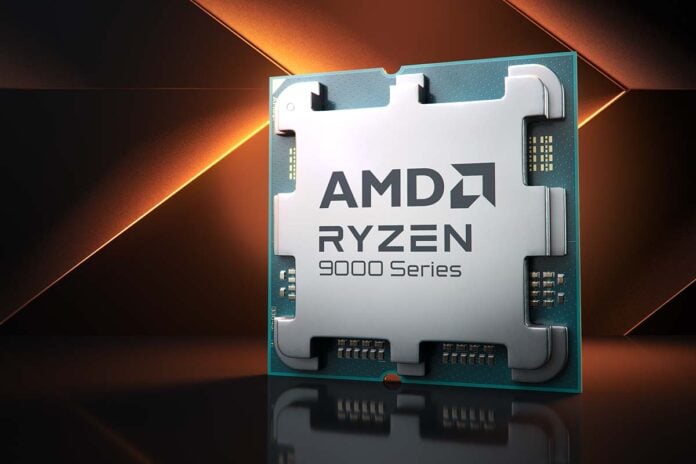There is growing uncertainty surrounding AMD’s eagerly anticipated Ryzen 9000 Series desktop CPUs.
Originally scheduled for global launch on July 31, the new processors were delayed at the last minute, with the chip giant citing “an abundance of caution.”
Confidence in consumer desktop CPUs is already on shaky ground, with rival Intel experiencing significant instabilities across an entire raft of 13th and 14th Gen chips.
Intel is only now beginning to share specific details, confirming to The Verge that “customers experiencing instability on their 13th or 14th Generation desktop processor-based systems should contact Intel customer support for further assistance.”
The issue for Intel CPUs is said to revolve around elevated voltages, yet the root cause of AMD’s unexpected delay remains something of a mystery.
AMD claims “initial production units that were shipped to our channel partners did not meet our full quality expectations,” but has thus far been reluctant to go into greater detail.
Speaking exclusively to Club386, AMD PR director, Iain Bristow, is keen to point out “this is not a product issue, and it is related to testing.”
“We identified an issue with our initial production testing for Ryzen 9000 series processors that could result in a small number of parts reaching market that do not meet our quality standards. As a result, we have updated our test flow to include additional screening,” adds Bristow.
Nevertheless, such vagaries plant uncertainty in the minds of enthusiast consumers. Putting the lateness of the recall into perspective, system integrators had already begun building Ryzen 9000 Series desktops.
Some of these systems had made their way into the hands of reviewers, only to be swiftly recalled. An odd state of affairs, given such PCs are strenuously tested for stability. It would seem even the biggest system builders were caught unaware.
Ambiguity natually leads to increased speculation and conjecture. The latest rumour doing the rounds is that AMD’s recall could have been issued due to a simple typo. Word on the grapevine is that Ryzen 7 9700X may have been mislabbeled as Ryzen 9 9700X.
Such an error would align with the short delay but wouldn’t explain why every part has been delayed by varying time frames. And if it is merely a typo holding up proceedings, full transparency would be beneficial.
Mid-range Ryzen 7 9700X and Ryzen 5 9600X processors will now come to market August 8, following by high-end Ryzen 9 9950X and Ryzen 9 9900X beginning August 15.
Club386 has reached out to AMD for further comment.


